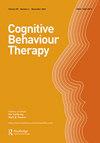反思性作文评分量表(REMS)的可靠性:学生反思性作文的评分量表
IF 4.3
2区 心理学
Q1 PSYCHOLOGY, CLINICAL
引用次数: 0
摘要
个人实践(PP)在主要的心理学和心理治疗组织和模式中被广泛实践和要求。然而,培训机构面临的挑战之一是如何评估这些PP的质量。开发反思性论文评分量表(REMS)是为了提高认知行为心理治疗(CBT)培训中反思性论文评分的标准化。通过电子邮件招募的16名专家CBT参与者的小样本使用REMS在主题内设计中对两篇模拟反思性文章进行评分。REMS的内部一致性可接受(Cronbach’s α= 0.73),具有良好的量表间信度。在评级者中,它充分区分了质量(t 12=4.91;p <。)。虽然这些都是初步的、非常小的研究结果,使用了小样本的模拟文章,但rem可能是一个有用的量表,允许CBT课程以标准化的方式解释学生的反思工作。未来需要进行更大规模的验证研究。主要学习目的(1)提高评判员在对实习治疗师的反思性论文进行评分时应该关注什么的思考。(2)描述量表的发展及其信度测试。(3)提高反思实践评价的透明度和客观性。本文章由计算机程序翻译,如有差异,请以英文原文为准。
Reliability of the Reflective Essay Marking Scale (REMS): a scale for marking of students’ reflective essays
Abstract Personal practice (PP) is widely practised and a requirement across major psychology and psychotherapy organizations and modalities. However, one of the challenges for training institutions is how to assess the quality of such PP. The Reflective Essay Marking Scale (REMS) was developed to improve standardization of marking reflective essays in cognitive behavioural psychotherapy (CBT) training. A small sample of 16 expert CBT participants recruited by email used the REMS to rate two mock reflective essays in a within-subjects design. The internal consistency of REMS was acceptable (Cronbach’s α=.73) with excellent inter-rater reliability. Across the raters, it sufficiently differentiated quality (t 12=4.91; p<.0001). Although these are the results of a preliminary and very small study with a small sample using mock essays, the REMS may be a useful scale, allowing CBT courses to account for students’ reflective work in a standardized way. A larger validation study is required in the future. Key learning aims (1) To improve the thinking about what raters should focus on when rating the reflective essays of trainee therapists. (2) To describe the development of the scale and how its reliability was tested. (3) To improve the transparency and objectivity in assessing and rating reflective practice.
求助全文
通过发布文献求助,成功后即可免费获取论文全文。
去求助
来源期刊

Cognitive Behaviour Therapy
PSYCHOLOGY, CLINICAL-
CiteScore
9.20
自引率
0.00%
发文量
25
期刊介绍:
Cognitive Behaviour Therapy is a peer reviewed, multidisciplinary journal devoted to the application of behavioural and cognitive sciences to clinical psychology and psychotherapy. The journal publishes state-of-the-art scientific articles within: - clinical and health psychology - psychopathology - behavioural medicine - assessment - treatment - theoretical issues pertinent to behavioural, cognitive and combined cognitive behavioural therapies With the number of high quality contributions increasing, the journal has been able to maintain a rapid publication schedule, providing readers with the latest research in the field.
 求助内容:
求助内容: 应助结果提醒方式:
应助结果提醒方式:


